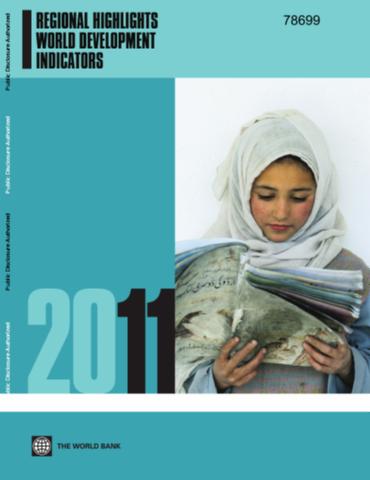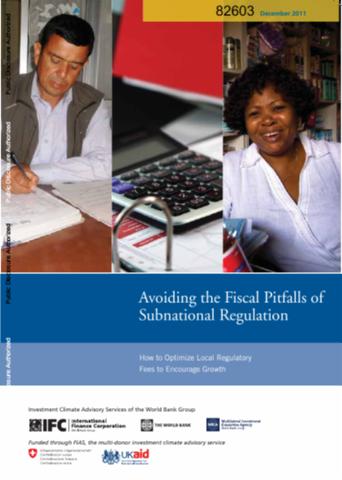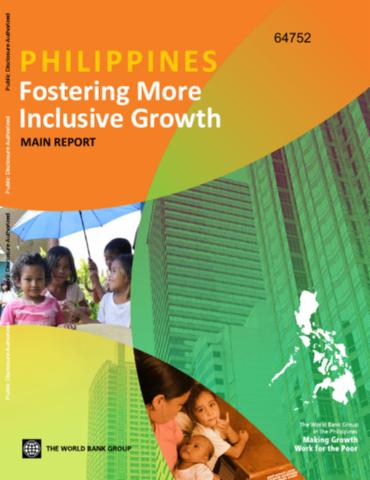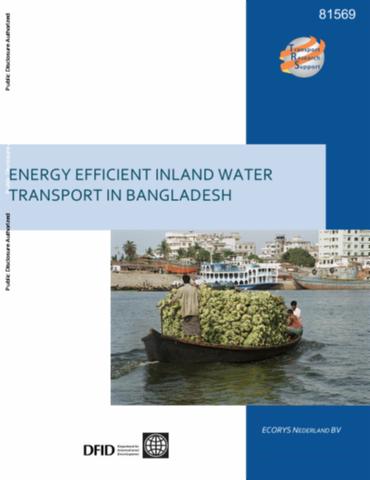The World Bank is a vital source of financial and technical assistance to developing countries around the world. We are not a bank in the ordinary sense but a unique partnership to reduce poverty and support development. The World Bank Group has two ambitious goals: End extreme poverty within a generation and boost shared prosperity.
- To end extreme poverty, the Bank's goal is to decrease the percentage of people living on less than $1.25 a day to no more than 3% by 2030.
- To promote shared prosperity, the goal is to promote income growth of the bottom 40% of the population in each country.
The World Bank Group comprises five institutions managed by their member countries.
The World Bank Group and Land: Working to protect the rights of existing land users and to help secure benefits for smallholder farmers
The World Bank (IBRD and IDA) interacts primarily with governments to increase agricultural productivity, strengthen land tenure policies and improve land governance. More than 90% of the World Bank’s agriculture portfolio focuses on the productivity and access to markets by small holder farmers. Ten percent of our projects focus on the governance of land tenure.
Similarly, investments by the International Finance Corporation (IFC), the World Bank Group’s private sector arm, including those in larger scale enterprises, overwhelmingly support smallholder farmers through improved access to finance, inputs and markets, and as direct suppliers. IFC invests in environmentally and socially sustainable private enterprises in all parts of the value chain (inputs such as irrigation and fertilizers, primary production, processing, transport and storage, traders, and risk management facilities including weather/crop insurance, warehouse financing, etc
For more information, visit the World Bank Group and land and food security (https://www.worldbank.org/en/topic/agriculture/brief/land-and-food-security1
Resources
Displaying 4546 - 4550 of 4907Real Options and Project Evaluation
In this paper authors present a preliminary approach to the evaluation of policies and projects based on current thinking on cost benefit analysis and real option methodology and the authors' recent work on the same subject. Authors start from the assumption that economic agents undertake investment projects in order to create and exploit opportunities for increasing profits, growth, wealth and, ultimately, their welfare. These opportunities are options, rights and not obligations to take some action in the future.
Regional Highlights World Development Indicators 2011
The primary completion rate for 7 countries-Benin, Burkina Faso, Guinea, Ethiopia, Madagascar, Mozambique, and Niger-more than doubled between 1991 and 2009. Still large differences persist between rich and poor within countries. In some low-income countries, such as Benin, the completion rates for the richest quintile are 95 percent or higher, but completion rates for the poorest quintile are 35 percent or less. And there is a 9 percentage point gap in the completion rates for boys and girls.
Avoiding the Fiscal Pitfalls of Subnational Regulation
Since investment climate reforms in developing countries started gaining traction in the 1990s, most efforts have focused on issues at the national level, achieving varying degrees of success for reasons that are relatively well understood. This handbook provides an overview of efforts and achievements in subnational investment climate reforms. It is organized as follows. Chapter 2 reviews a number of countries experiences with subnational reforms, noting both success stories and disappointments and pointing toward lessons learned.
Philippines
The main report is organized into three parts: part one provides the overall context by describing the level and evolution of poverty and inequality in the Philippines and by analyzing the factors that could be weakening the link between economic growth and poverty reduction. It also provides a brief profile of the poor. Part two addresses the first strategic component for fostering inclusive growth, which refers to the enhancement of income opportunities and ensuring greater labor mobility for the poor.
Energy Efficient Inland Water Transport in Bangladesh
IWT is more energy efficient that modes like road or rail. The bigger capacity of IWT units means that the sector is able to ship more tons per kilometer per unit of fuel than what is possible with other modes. This benefits the climate and makes the sector relatively cost-efficient. Even so, few countries fully exploit the potential benefits of IWT and in many countries the share of road transport is increasing at the cost of IWT. There are various possible reasons for this trend.










